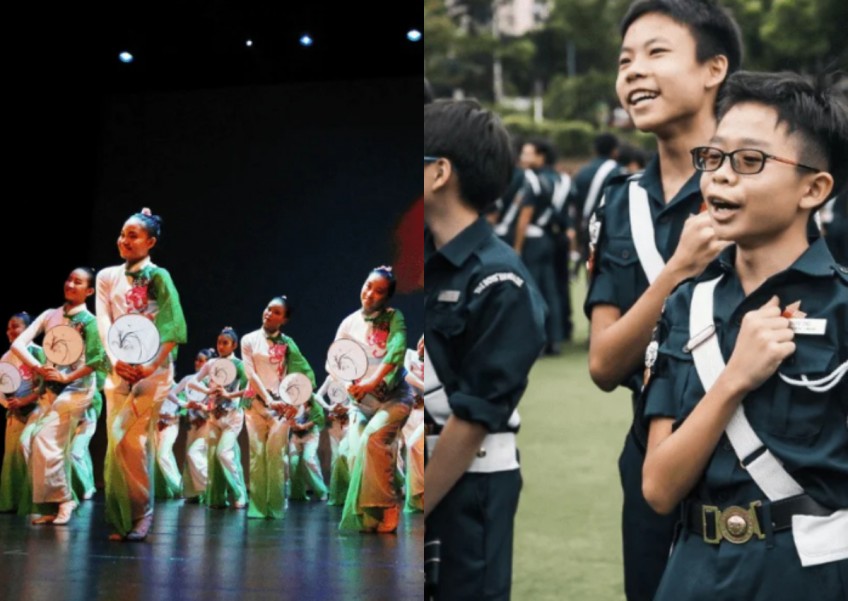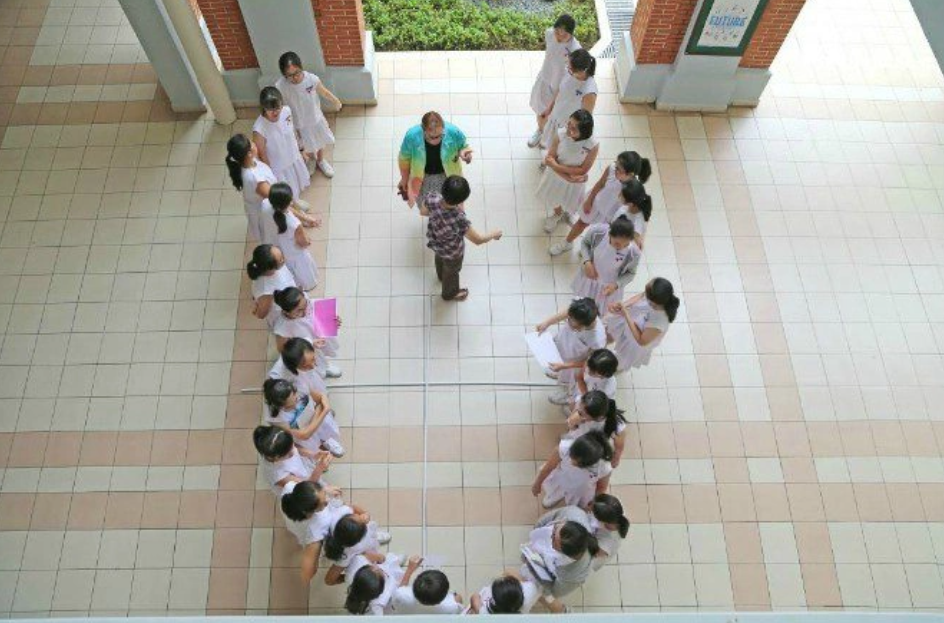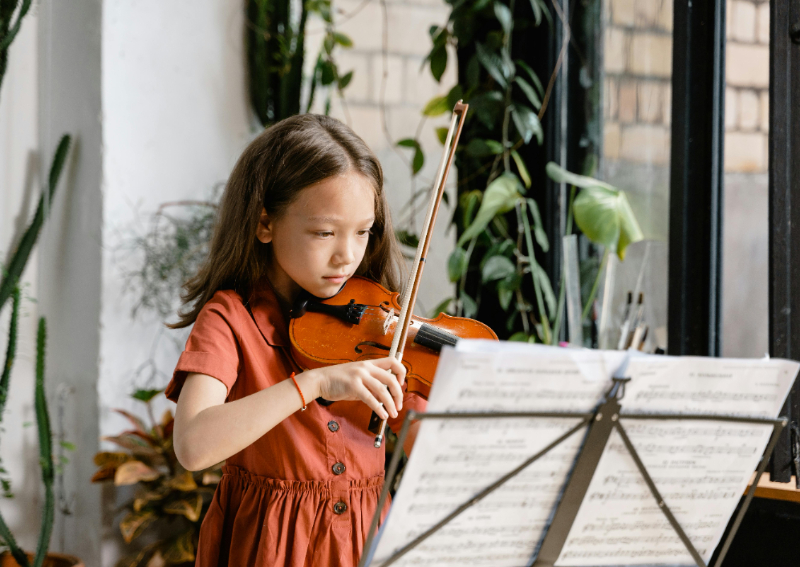Parents' guide to understanding CCA for your kid

Education is not only about what students learn within the walls of a classroom. Co-curricular activities (CCA), or Extracurricular Activities (ECA) as it was called during our time, are non-academic activities that the Ministry of Education (MOE) strongly encourages all students to participate in. In fact, all students should have a CCA.
The question that parents often ask is, What CCA is the best?
To answer that simply, it's not about what CCA is the best but rather, What CCA is best for your child? Before we get around to explaining the options that your child has, let's get the basic facts in order.
MOE believes that CCA is an integral part of our students' holistic education. Yes, the keyword here is — holistic. Sometimes parents are so fixated on the idea of lessons and examinations that they forget about the other aspects of learning.
"Participation in CCA fosters social integration and deepens students' sense of belonging, commitment and sense of responsibility to school, community and nation".
Students often discover their interests and talents by participating in a CCA. It also equips them with many important skills and competencies to prepare them for our ever-changing and globalising world.
CCA groups are also a great platform for students from diverse backgrounds and academic abilities to bond, play together and learn from each other. It provides them with opportunities to socialise.

In most primary schools, students start participating in CCA from Primary 3. Not all schools make it compulsory, but students are always strongly encouraged to participate in a CCA.
CCA participation in secondary schools starts from Secondary 1. It is compulsory for students to take on at least one CCA. Many students take on a second CCA.
How do you help your child to decide which CCA to pick? Here are some factors to consider.
Considering the nature of our kiasu Singaporean parents, I'm listing this as the first pointer. For those who are in the dark, DSA allows students to seek admission to a secondary school on the basis of talents and achievements not demonstrated in the Primary School Leaving Examination.
For example, students who have exceptional abilities in music or sports can choose to apply directly to a school based on their talents in these areas.
If your child is gifted in any of these areas, it is a good idea to encourage them to participate in a related CCA. Some multi-talented students are gifted in more than one area. They participate in CCAs across the categories and even represent the school in competitions.
However, as much as DSA sounds like a great plan, please refrain from forcing your child into a CCA that he has neither interest nor talent in, just for the purpose of DSA.
Also, if your child already has training outside of school, and wishes to explore a different CCA in school, let them go ahead. In case you didn't know, your child can still represent the school in competitions whether or not they participate in the CCA.
For example, if your child privately attends golf lessons and is exceptionally talented in it, and his school does not offer golf as a CCA, the school can still sign him up to represent the school in the National School's Golf competition.
This is something that many parents are unaware of. Please approach your child's teachers to find out more should you be interested.
While it is good to let children explore and discover their talents, it is not wise to keep changing CCA. Talk your child through the selection process.
Ensure that he chooses a CCA that he enjoys and has an interest in so that he can stay committed and see himself growing in it.
Here is generally what to expect for the commitment level. CCA time is outside of curriculum hours and requires a bare minimum of two hours, once a week. Of course, training for sports and performing groups, or organising activities for clubs and societies take a lot more time.
Some CCAs are more demanding than others. Do consider the commitments your child has in terms of schoolwork, family, and social life. For students who are weak academically, you might want to choose a less demanding CCA to free some time up for tuition and extra revision.
Children often cannot gauge for themselves if they can balance and juggle all their commitments. Teachers have come across overly ambitious students who want to participate in everything only to end up dropping out of their CCA because of fatigue, boredom or the inability to cope.
If you are making the CCA choice from scratch, meaning, your child doesn't have a preexisting talent or interest, and you don't have a specific preference, you might want to do some research first.
Don't forget that schools always have Open House days, or CCA Showcases or fairs. Students, along with their parents and siblings, get a glimpse of what life is like in each CCA group. They can try out the various activities. Seniors and teachers in charge will also be around to address any questions you have.
This is also when the CCA groups are actively talent-spotting! So when your child's school invites you to one of these, please make some free time in your schedule to attend it.

There are four main categories.
Examples — Media Club, Robotics Club, Science Club, Chinese Club, Environment Club, Prefectorial Board, Student's Council.
While some societies such as the Student's Council may be extremely time-consuming, others such as the reading club may be much more relaxed. The good thing is that it frees time up for your child.
The drawback of having a more relaxed CCA is that your child may be a 'sleeping' or inactive member. If he's attending CCA just for the sake of attendance, and not actually learning or growing in the CCA, then it's a waste of time.
If they do choose a more relaxed CCA, it's not a bad thing. It may be better suited for your child if he has many other activities outside school, or needs more time for his studies, or if he generally can't take the stress.
Whatever your reason, do ensure that you always check in on his progress, and guide him to making the most out of the CCA.
Examples — National Police Cadet Corps (NPCC), Boys & Girls' Brigade, National Cadet Corps (NCC).
UGs need no introduction do they? UGs are intense! Especially among secondary school students, these CCA groups are usually the most oversubscribed of the lot.
Here's the good thing - even the most naughty and rebellious of students magically transform into a disciplined, serious, 'soldier' or 'policeman' when they don the uniform. Trust me, it's unbelievable.
The not-so-good thing - because of the sheer number of UG members, students have to work really hard to be promoted and level up in rank, to shine and to gain more CCA points.
It's also a lot of standing and marching in the hot sun so be prepared for that. And did we mention regimentation?

Examples — Concert Band, Chinese Orchestra, Dance Clubs, Drama Club, Percussion, String Ensemble.
Choosing PAG as your CCA is a great way to get in touch with arts and culture. It gives students a platform (literally) to perform and build their confidence. The best part about this is that it's easier to shine, and it's difficult to be a ghost or sleeping member as everyone has a part to play.
For example, every orchestra member has to play a certain instrument.
Let me caution you though, that when it's time to perform, or when the competition season (Singapore Youth Festival) approaches, there will be a lot of extra practices and sometimes they are in school until nighttime.
As a performer, one can only expect to do all of that so please be prepared. There is no point kicking up a fuss and questioning the school about the extra hours.
Examples — Athletics, Swimming, Softball, Rugby, Sailing, Badminton.
Self-explanatory right? Sports are all about dedication and perseverance. This can work for or against your child. Your child will learn to push himself to his limits and beyond, be disciplined and never give up.
On the other hand, sports are tiring and demanding, and especially if your child has health problems, this may not be the best idea.
Otherwise, participating in sports is an excellent way to build character and strength in your child!
We hope this information is useful to you. Do remember mums, that CCAs are an extremely important part of your child's school life.
Encourage them to participate and enjoy their CCA. It's not so much what CCA choose, but what they take away from it that matters most!
ALSO READ: Choosing the right preschool: A guide for parents in Singapore
This article was first published in theAsianparent.